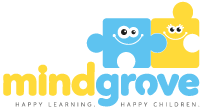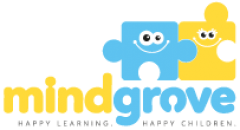
Understanding the Importance of Listening Skills in Preschoolers
Good listening skills play a crucial role in the overall development of preschoolers. As a parent or caregiver, it is important to understand the impact of effective listening skills on a child’s early childhood development, academic performance, and social interactions.
Impact of good listening skills on early childhood development
Having strong listening skills in the early years sets a solid foundation for learning and understanding. When children actively listen, they are able to absorb information, follow instructions, and engage with their surroundings. This fosters cognitive development, language acquisition, and problem-solving abilities.
Connection between strong listening skills and academic performance
Strong listening skills positively influence academic performance. By actively listening in the classroom or during educational activities, preschoolers are better able to follow directions, grasp new concepts, and retain information. This leads to improved participation, higher levels of engagement, and better academic outcomes.
Influence of listening skills on social interactions
Listening skills are essential for effective communication and building meaningful relationships. Preschoolers who possess good listening skills are more capable of empathizing with others, understanding social cues, and collaborating with peers. This not only enhances their social interactions but also contributes to their emotional and social development.
Creating a Supportive Environment for Developing Listening Skills
To promote the development of listening skills in preschoolers, it is crucial to create a supportive environment that encourages attentive listening. Here are some strategies to consider:
The role of active listening by adults in a child’s environment
As adults, our role in modeling active listening behavior is vital. When we actively listen to our preschoolers, we demonstrate the value of listening and create an environment where their thoughts and opinions are valued. Engaging in meaningful conversations and maintaining eye contact when communicating also helps foster attentive listening skills.
Utilizing positive reinforcement to encourage attentive listening
Positive reinforcement is an effective tool for encouraging attentive listening. Praising and acknowledging preschoolers when they demonstrate good listening skills reinforces their behavior and motivates them to continue practicing active listening. Simple gestures such as verbal praise, a pat on the back, or a reward system can go a long way in developing and maintaining attentive listening habits.
Incorporating storytelling and conversations into daily routines
Storytelling and conversations provide opportunities for preschoolers to actively listen and engage with the content. Reading books together, discussing daily experiences, and asking open-ended questions encourage children to listen attentively, process information, and express their thoughts. This helps cultivate critical thinking skills, vocabulary development, and an appreciation for different perspectives.
Implementing Engaging Activities to Enhance Listening Skills
Engaging activities can be incorporated into daily routines to enhance listening skills in preschoolers. Here are some effective methods:
Utilizing music and rhymes to capture attention and improve auditory processing
Music and rhymes capture children’s attention and enhance their auditory processing skills. Singing songs, playing musical instruments, and reciting rhymes help preschoolers develop a sense of rhythm, focus on auditory cues, and practice active listening.
Additionally, incorporating actions and movements into musical activities adds a kinesthetic element, making the learning experience more interactive and engaging.
Introducing listening games to promote focus and comprehension
Listening games are an engaging way to improve focus and comprehension skills in preschoolers. Activities such as “Simon Says,” “I Spy,” or “Sound Guessing” encourage children to actively listen, follow instructions, and recall information. These games also promote critical thinking, memory retention, and problem-solving abilities while making the learning process enjoyable.
Incorporating sensory activities to stimulate listening abilities
Sensory activities stimulate multiple senses, including listening. Engaging in activities such as playing with musical instruments, exploring different textures, or participating in nature walks with guided listening exercises helps preschoolers heighten their awareness of sounds in their environment. This enhances their listening skills, attention to detail, and ability to discriminate between different sounds.
Leveraging Technology for Enhancing Listening Abilities
In today’s digital age, technology can be effectively utilized to enhance listening abilities in preschoolers.
However, it is important to strike a balance and monitor screen time. Here are some considerations:
Exploring age-appropriate audio materials and educational apps
There are numerous age-appropriate audio materials and educational apps available that can help improve listening skills. These resources offer interactive stories, podcasts, and educational content specifically designed to engage young listeners. Choosing content that aligns with a child’s interests and abilities can provide an enjoyable and educational listening experience.
Selecting interactive digital content to hone listening and comprehension
Interactive digital content such as videos, games, and interactive stories can be beneficial for developing listening and comprehension skills. These activities often require active listening and engagement to complete tasks, answer questions, or solve problems. Careful selection of such content ensures that it supports educational goals and encourages the child’s active participation.
Monitoring screen time and balancing it with other listening experiences
While technology can be a valuable tool, it is important to balance screen time with other listening experiences. Preschoolers should have opportunities to engage in non-screen activities that require active listening, such as reading books, participating in conversations, or engaging in imaginative play. This helps maintain a well-rounded approach to developing listening skills.
FAQs
What are some simple methods for enhancing preschoolers’ listening skills?
Some simple methods for enhancing preschoolers’ listening skills include active listening by adults in their environment, utilizing positive reinforcement, incorporating storytelling and conversations, and engaging in listening games and sensory activities.
How can I engage preschoolers to improve their listening abilities?
To engage preschoolers and improve their listening abilities, consider incorporating engaging activities such as music and rhymes, listening games, and sensory activities. Encourage active participation and provide positive reinforcement to motivate them to listen attentively.
Are there any specific activities that can help enhance the listening skills of preschoolers?
Yes, specific activities such as singing songs, playing musical instruments, reading books, playing listening games like “Simon Says,” incorporating sensory activities, and utilizing age-appropriate audio materials and educational apps can enhance the listening skills of preschoolers.
What is the significance of developing good listening skills in preschoolers?
Developing good listening skills in preschoolers is significant as it promotes their overall development, enhances academic performance, and improves social interactions. Active listening skills enable children to absorb information, follow directions, and effectively communicate with others, contributing to their success in various areas of life.


